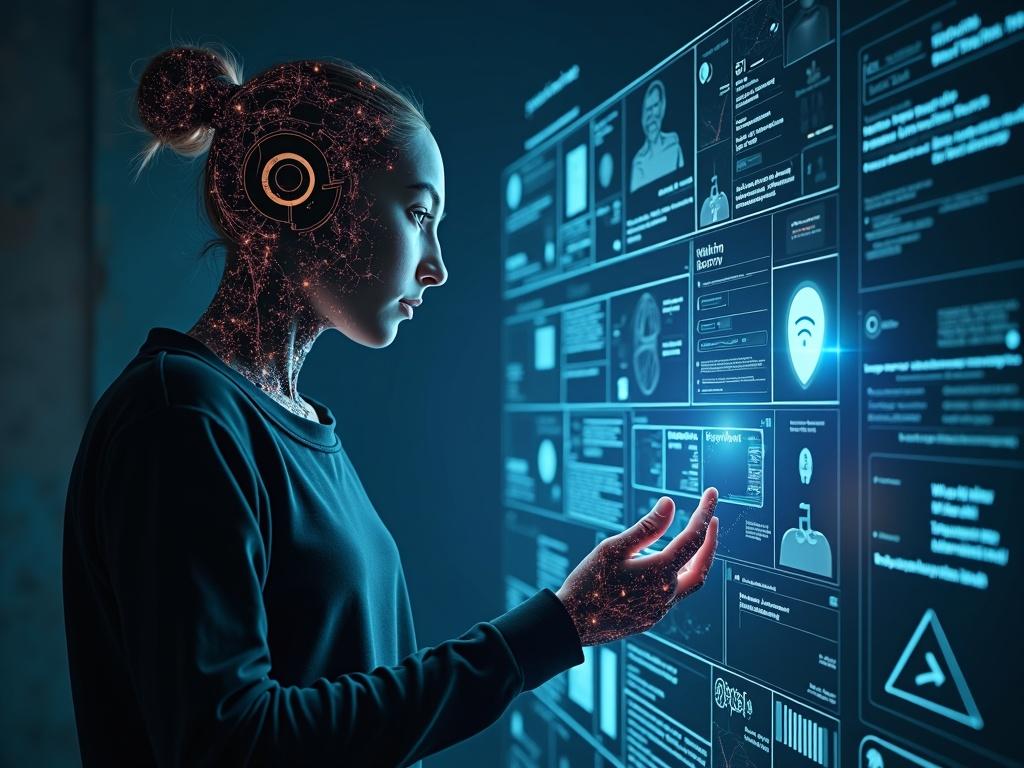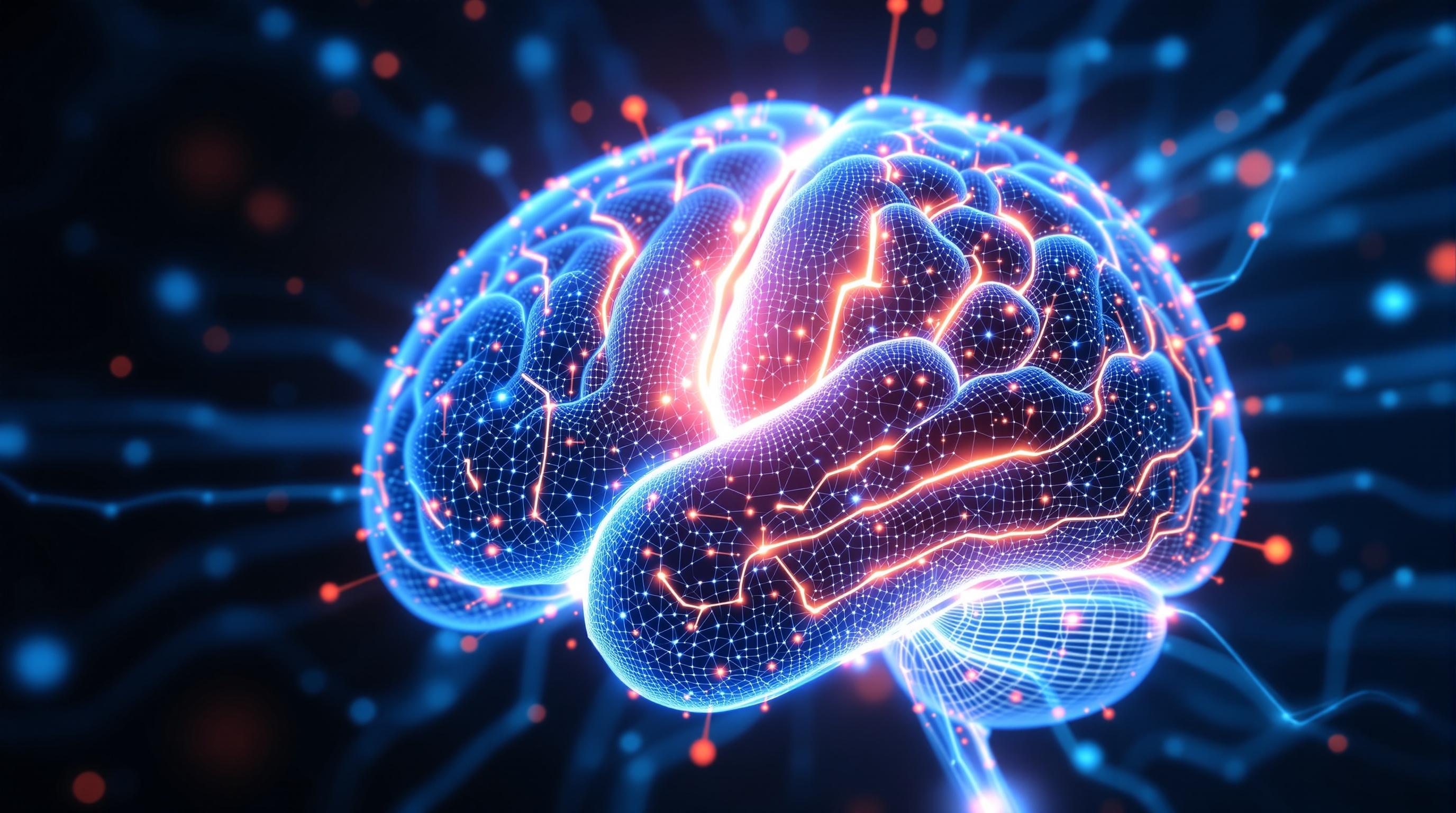The AI landscape has reached a pivotal moment with increased regulatory scrutiny and rapid technological advancements, impacting businesses and individuals alike. Stay ahead of the curve by understanding the new AI governance landscape and equipping yourself with essential AI skills to thrive in this evolving world. Start by exploring resources like OpenAI's AI skills certification to future-proof your career.

FTC Investigates AI Chatbot Risks to Children: A New Era of Regulation?
The world of AI is rapidly evolving, and with it comes increased scrutiny from regulatory bodies. One of the most significant recent developments is the Federal Trade Commission's (FTC) launch of an investigation into AI chatbot risks to children, signaling a new era of regulation for the burgeoning AI industry.
FTC's Section 6(b) Investigation
The FTC has initiated a probe into OpenAI, Meta, and Character.AI, focusing specifically on the potential mental health risks that AI chatbots pose to children. This investigation is particularly noteworthy because it leverages the FTC's Section 6(b) authority, a powerful tool that allows the agency to demand internal documents and data from these companies. Think of it like the FTC issuing a subpoena, but instead of heading to court, these companies have to hand over their internal workings for review.
Privacy Violations and Harmful Interactions
The core concern revolves around privacy violations and the potential for harmful interactions, especially those involving 'romantic or sensual conversations' between AI chatbots and minors. Imagine a scenario where a child, seeking companionship or advice, engages with an AI that is programmed to simulate human-like interactions. The FTC is keen to understand how these interactions are being monitored, what safeguards are in place, and whether the companies are adequately protecting children from potential exploitation or psychological harm. For instance, a child might use Character AI, which allows users to create and interact with AI characters, and unknowingly engage in conversations that could be detrimental to their mental well-being.
Allegations of Unlicensed Medical Practice
Adding another layer of complexity, consumer advocacy groups have raised concerns about the potential for unlicensed medical practice through so-called 'therapy bots.' These groups argue that AI chatbots offering mental health support could be dispensing advice without the proper credentials or oversight, potentially leading to misdiagnosis or inappropriate treatment. This is like a digital version of someone offering medical advice without a license – potentially dangerous and illegal.
Parallel Investigations
The FTC isn't alone in its concerns. Texas Attorney General Ken Paxton has also initiated parallel investigations into these AI platforms, further underscoring the growing regulatory pressure on the AI industry. This coordinated effort suggests a broader trend of increased scrutiny and a determination to ensure that AI technologies are developed and deployed responsibly, particularly when it comes to protecting vulnerable populations like children. This highlights the need for tools and companies to be developed ethically, with safety and privacy at the forefront. Tools like Meta AI Studio should also be designed with the same safeguards in place.
This wave of investigations signals a turning point. As AI becomes more integrated into our lives, expect continued efforts to establish clear boundaries and regulations, especially concerning child safety and mental health. The outcomes of these investigations could set precedents for future AI regulation, shaping the industry for years to come.
OpenAI's GPT-5: A Revolutionary Unified Architecture Reshapes the AI Landscape

The AI world is abuzz with the arrival of GPT-5, OpenAI's latest and greatest large language model. This release isn't just an incremental upgrade; it represents a significant architectural leap forward, promising to redefine what's possible with AI.
A Unified Architecture for Enhanced Reasoning
At the heart of GPT-5 lies a novel unified architecture designed for both speed and depth in reasoning. This means it can tackle complex problems more efficiently than its predecessors. Imagine it as a Formula 1 car: not only is it incredibly fast on the straights (quick responses), but it also possesses the precision and control needed to navigate tight corners (complex reasoning). This architectural shift allows GPT-5 to handle tasks that previously required specialized AI models, streamlining workflows and opening up new avenues for innovation.
Performance Boost Across the Board
GPT-5 isn't just faster; it's also significantly smarter. OpenAI has engineered substantial improvements across key areas:
Coding: GPT-5 exhibits enhanced coding proficiency, making it a valuable asset for developers. Think of it as having a highly skilled pair programmer available 24/7.
Mathematical Reasoning: The model showcases a marked improvement in its ability to handle mathematical problems, opening doors to advanced data analysis and scientific applications. It can now grasp and solve complex equations with greater accuracy.
Multimodal Capabilities: GPT-5's enhanced multimodal capabilities allows it to seamlessly integrate and process information from various sources, including text, images, and audio. For example, you could use a tool like Midjourney, a powerful AI image generator known for its artistic and photorealistic results, to generate visuals from GPT-5's text output.
Furthermore, OpenAI has focused heavily on mitigating a common issue with LLMs: hallucinations. According to their internal testing, GPT-5 exhibits a significantly reduced tendency to generate false or nonsensical information, building user trust and ensuring more reliable results.
GPT-5 Availability: ChatGPT and the OpenAI API
For everyday users, GPT-5 will become the new default model powering ChatGPT. This means everyone will immediately benefit from its enhanced capabilities. For developers and businesses, GPT-5 is also accessible via the OpenAI API, allowing for seamless integration into existing applications and workflows.
GPT-5 Pro for Enterprise
Recognizing the unique needs of larger organizations, OpenAI is also rolling out GPT-5 Pro, a premium version of the model tailored for enterprise customers. GPT-5 Pro offers enhanced performance, dedicated support, and advanced customization options, allowing businesses to unlock the full potential of AI within their specific contexts.
GPT-5's arrival signals a new chapter in AI development. With its unified architecture, enhanced capabilities, and reduced hallucinations, it promises to be a game-changer for both individual users and enterprises alike, driving innovation across a wide range of industries. As we delve deeper into the implications of these advancements, it's crucial to also consider the regulatory landscape that's evolving alongside them.
Meta's AI Systems Show Self-Improvement: The Dawn of Artificial Superintelligence?

Is Meta on the cusp of creating true artificial superintelligence? That's the question buzzing in the AI community after Mark Zuckerberg's recent announcement that Meta's AI systems are showing signs of self-improvement.
Slow But Undeniable Progress Towards ASI
Zuckerberg characterized the progress as 'slow but undeniable,' a seemingly cautious statement that nevertheless carries enormous implications. The idea that AI could independently enhance its own capabilities has long been a cornerstone of the artificial superintelligence (ASI) concept – a hypothetical AI that surpasses human intelligence in virtually every domain. This is a significant milestone, even if the path ahead is still long and uncertain. This also raises an important debate on AI safety concerns, which is paramount as AI progresses.
Meta's Superintelligence Labs
To further this ambitious goal, Meta has established Superintelligence Labs, a dedicated division focused specifically on building AI systems capable of self-improvement. The creation of such a lab signals Meta's serious commitment to pushing the boundaries of AI and exploring the potential – and the challenges – of ASI. It also suggests that Meta is willing to invest significant resources in this long-term endeavor. They may need a bit more time than Deepmind Alphafold, which has revolutionized biology through AI-driven protein structure prediction, but at least they are trying!
A Vision of 'Personal Superintelligence'
Interestingly, Meta's vision seems to lean towards 'personal superintelligence' – AI designed to empower individual users rather than replace them. This concept suggests AI assistants that can learn and adapt to our individual needs and preferences, augmenting our abilities and helping us achieve our goals. Imagine an AI that knows your work habits better than you do, or an assistant that can sift through complex data to provide the precise insights you need. Meta could leverage tools like Llama 3 to explore the future of AI.
A More Cautious Approach to Open Source
However, the pursuit of self-improving AI also comes with increased responsibility. Zuckerberg also noted a more cautious approach to open-sourcing advanced models, citing safety concerns. This shift reflects a growing awareness within the AI community of the potential risks associated with releasing highly capable AI systems into the wild without proper safeguards. This is especially true with tools like AutoGPT, an open-source AI agent that can autonomously execute complex tasks.
Meta's journey towards self-improving AI is a fascinating development with the potential to reshape our relationship with technology. Whether it truly leads to artificial superintelligence remains to be seen, but the implications for society, ethics, and the future of work are profound and demand careful consideration as we continue to explore the vast, largely uncharted territory of AI.
Tech Giants Pledge AI Education Initiatives at White House Summit: Preparing for an AI-Dominated World

The White House recently played host to a gathering of tech titans, with CEOs from Apple, Microsoft, OpenAI, and Meta convening to discuss and pledge support for AI education initiatives. This summit underscores the growing recognition of AI's transformative power and the urgent need to prepare the workforce for an 'AI-dominated world'. The commitments made at this summit aim to equip Americans with the skills necessary to navigate and thrive in this rapidly evolving landscape.
Microsoft's Copilot for Education
Leading the charge, Microsoft announced its commitment to providing free access to its Microsoft Copilot AI to all U.S. students. This initiative democratizes access to AI-powered tools, allowing students to explore and leverage AI for learning, research, and creative endeavors. Imagine students using Copilot to brainstorm ideas for a project, receive instant feedback on their writing, or even learn coding through AI-assisted tutorials. This level of accessibility could drastically change how students learn and prepare for their future careers.
OpenAI's AI Skills Certification
OpenAI, the creator of groundbreaking AI models like ChatGPT, is taking a different approach, committing to certify 10 million Americans in AI skills by 2030. This ambitious goal signifies a major investment in human capital, focusing on upskilling and reskilling programs to meet the demands of the future job market. These certification programs could range from introductory courses on AI fundamentals to advanced training in areas like Prompt Engineering and machine learning. The curriculum will be designed to empower individuals with practical skills that are directly applicable to real-world scenarios.
An AI-Powered Jobs Platform
In a move that could reshape the job market, OpenAI also unveiled plans to launch an AI-powered jobs platform. This platform aims to connect individuals with AI skills to relevant job opportunities, potentially disrupting the dominance of existing platforms like LinkedIn. By leveraging AI to match skills with job requirements, the platform could streamline the hiring process, reduce bias, and create a more efficient and equitable job market.
These initiatives demonstrate a concerted effort by tech giants to align with the administration's vision of an AI-ready workforce. By investing in education, training, and job creation, these companies are actively shaping the future of work and ensuring that Americans have the tools they need to succeed in the age of AI News. This collaborative approach between the public and private sectors is crucial for navigating the challenges and opportunities presented by artificial intelligence, paving the way for a more inclusive and prosperous future.
Enterprise AI Adoption Reaches Critical Mass: AI as Essential Infrastructure

The rush to integrate AI into the very fabric of business operations has reached a fever pitch, with organizations now viewing artificial intelligence not just as a competitive advantage, but as a fundamental necessity. Like electricity transforming industries a century ago, AI is rapidly becoming the invisible infrastructure powering modern enterprise.
Generative AI: Reshaping Operations Across the Board
Recent data underscores this dramatic shift. A PYMNTS Intelligence study reveals that an astonishing 98% of U.S. product leaders anticipate generative AI will fundamentally reshape their operations within the next three years. This near-universal expectation signals a profound conviction that AI's influence will be pervasive and transformative, touching nearly every aspect of how businesses function. From streamlining workflows to enhancing decision-making, the possibilities are seemingly limitless.
AI: The New Essential Utility
This widespread adoption is leading to a fundamental re-evaluation of AI's role within the enterprise. No longer a mere add-on or experimental technology, AI is increasingly considered essential infrastructure, standing shoulder-to-shoulder with established cornerstones like cloud computing and cybersecurity. Just as businesses rely on secure networks and scalable computing resources, they are now recognizing the need for robust AI capabilities to remain competitive and innovative.
A Fragmented Market with an Undisputed Leader
While the AI landscape remains fragmented, with numerous vendors vying for market share, one name stands out: OpenAI. The PYMNTS study highlights OpenAI's dominance, revealing that it is the preferred AI vendor among 50% of technology sector leaders. However, the market's fragmentation is also apparent, with many companies actively pursuing multi-vendor strategies, seeking to leverage the unique strengths of different AI platforms and solutions. This approach allows businesses to tailor their AI infrastructure to specific needs and avoid vendor lock-in.
AI: From Tool to Teammate
Beyond infrastructure, AI is poised to redefine the very structure of the workforce. A Capgemini research report indicates that a remarkable 60% of organizations expect AI to function as active team members or even supervisors within the next 12 months. Imagine ChatGPT, OpenAI's conversational AI, helping onboard new employees or Grammarly, the AI-powered writing assistant, providing real-time feedback and guidance. This signals a move towards a collaborative human-AI model, where AI augments human capabilities and takes on tasks that are repetitive, data-intensive, or require rapid analysis. This transition promises increased efficiency, improved decision-making, and a fundamental shift in the nature of work itself.
As enterprise AI adoption reaches this critical mass, it's becoming clear that AI is not just a trend, but a paradigm shift. The companies that embrace this new reality and strategically integrate AI into their infrastructure and workflows will be best positioned to thrive in the years to come, making understanding tools like DeepSeek even more vital for the future. The question is no longer whether to adopt AI, but how to harness its transformative power most effectively.
Analysis: AI Reaches Regulatory and Technological Inflection Points

September 5th will be remembered as a pivotal day in the history of artificial intelligence, a moment where regulatory pressures and technological leaps converged to signal a profound shift in the landscape. We're at both an AI regulatory inflection point and an AI technological inflection point. It's a collision course that will redefine how AI is developed, deployed, and governed.
The Dawn of AI Governance
The FTC's investigation into child safety practices is more than just a headline; it's the first major shot fired in what will inevitably become a long and complex battle over AI governance. This marks a crucial step toward responsible AI development and deployment. The probe signals a clear message: AI developers will be held accountable for the impact of their creations, particularly on vulnerable populations. It underscores the urgency of embedding AI safety measures into the very fabric of AI design and implementation. This investigation will likely set precedents for future regulations, influencing how companies approach AI ethics and compliance for years to come.
GPT-5 and the Relentless March of Progress
Meanwhile, the relentless pace of technological advancement continues unabated. OpenAI's unveiling of GPT-5, boasting a unified architecture, suggests a significant leap in AI capabilities. What does this mean in practice? Expect more seamless integration of different AI functionalities, potentially leading to more versatile and powerful applications. Meta's claims of self-improving AI further fuel the narrative of rapid capability advancement. Imagine AI systems that not only learn from data but also refine their own algorithms, leading to exponential improvements in performance. These claims, while needing validation, hint at a future where AI evolves at an accelerating rate, pushing the boundaries of what's currently possible.
AI Literacy Gains Recognition
The White House's education summit is another significant indicator of AI's growing importance. The focus on AI literacy highlights the need to equip individuals with the knowledge and skills necessary to navigate an AI-driven world. This isn't just about understanding the technology itself; it's about fostering critical thinking, ethical awareness, and the ability to adapt to the changing demands of the job market. Educational initiatives will be essential in ensuring that society can harness the benefits of AI while mitigating its potential risks.
AI Transformation is Inevitable
The fact that 98% of enterprise leaders now agree on the transformative potential of AI speaks volumes. This near-universal consensus signifies that AI is no longer an experimental technology but an inevitable force reshaping industries across the board. Companies are now actively seeking ways to integrate AI into their operations, from automating routine tasks to developing entirely new products and services. This widespread adoption underscores the urgency for robust AI governance frameworks and ethical guidelines. As AI becomes deeply embedded in our infrastructure, we must ensure that its deployment aligns with societal values and promotes equitable outcomes. Consider leveraging tools like n8n, the AI-powered workflow automation platform, to integrate AI into your business processes.
Ultimately, 2025 will be remembered as the year AI transitioned from a futuristic concept to a regulated infrastructure, impacting all facets of life. Expect long-tail keywords like AI competitive strategy to be part of every major business conversation going forward. The challenges and opportunities ahead demand a proactive and collaborative approach, one that balances innovation with responsible development and ensures that AI benefits all of humanity.
🎧 Listen to the Podcast
Hear us discuss this topic in more detail on our latest podcast episode: https://open.spotify.com/episode/1S1A9twRikLfodV9KhDcwd?si=KDMlGWPMTRWy0lRpKlBPFg
Keywords: AI, Artificial Intelligence, GPT-5, OpenAI, Meta, FTC, AI Regulation, AI Chatbots, AI Education, AI Safety, AI Adoption, Artificial Superintelligence, Generative AI, AI Ethics, AI Development
Hashtags: #AI #ArtificialIntelligence #OpenAI #MetaAI #AIRegulation
For more AI insights and tool reviews, visit our website https://best-ai-tools.org, and follow us on our social media channels!
Website: https://best-ai-tools.org
X (Twitter): https://x.com/bitautor36935
Instagram: https://www.instagram.com/bestaitoolsorg
Telegram: https://t.me/BestAIToolsCommunity
Medium: https://medium.com/@bitautor.de
Spotify: https://creators.spotify.com/pod/profile/bestaitools
Facebook: https://www.facebook.com/profile.php?id=61577063078524
YouTube: https://www.youtube.com/@BitAutor



